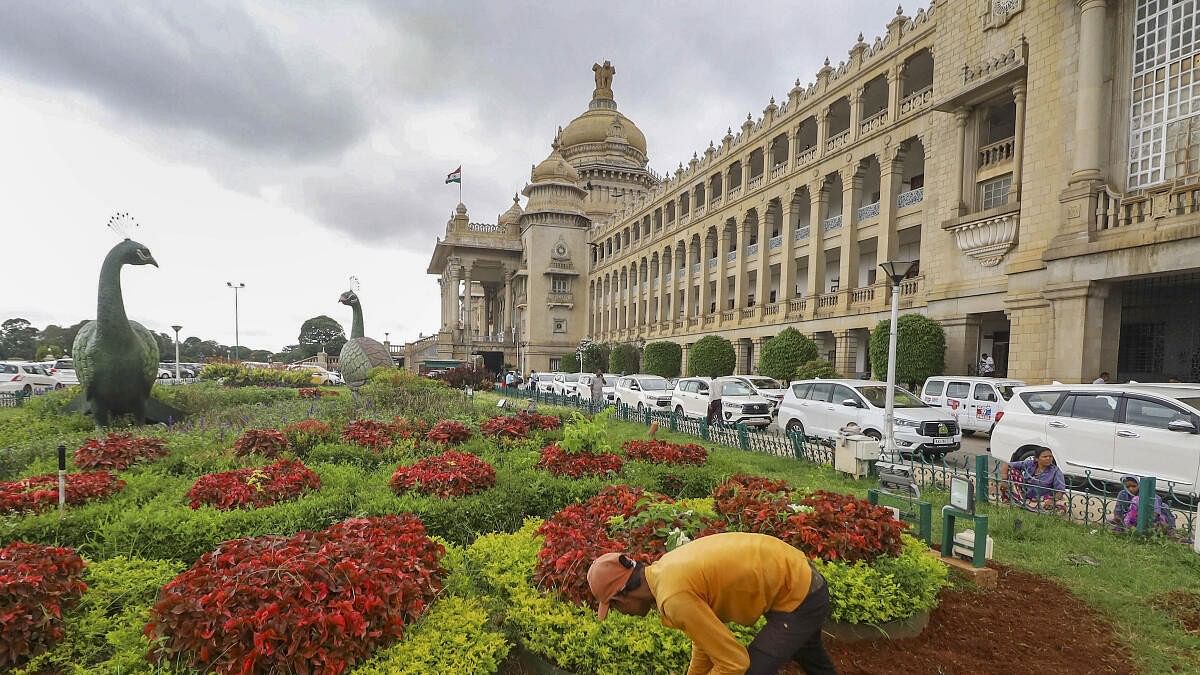
Karnataka Finance Department headed by Chief Minister Siddaramaiah is in favour of the Unified Pension Scheme (UPS) that has been approved by the Modi administration, a top source said.
Credit: PTI photo
Bengaluru: The Karnataka Finance Department headed by Chief Minister Siddaramaiah is in favour of the Unified Pension Scheme (UPS) that has been approved by the Modi administration, a top source said, adding that a decision will be taken based on political consensus within the ruling Congress.
Congress president Mallikarjun Kharge has already criticised the UPS, saying the 'U' stood for "U-turns". On Monday, Siddaramaiah said his government is examining the new scheme.
"We should be supporting the UPS, which is better than reverting to the Old Pension Scheme (OPS)," a finance department official said. "But politically, the Congress party has to take a view as it seems to be supportive of the OPS."
Last year, the Congress, in its Karnataka election manifesto, promised to "sympathetically consider" bringing back the OPS for government employees who are under New Pension Scheme (NPS). The Congress revived the OPS in Himachal Pradesh and Rajasthan.
A decision on implementing or rejecting the UPS will impact 5.26 lakh government employees, 2.20 lakh staff at various boards/corporations and 4.5 lakh pensioners in Karnataka.
"We have an open mind about UPS," Revenue Minister Krishna Byre Gowda told DH.
The Finance Department has officially flagged the cost of reverting to the OPS, describing it as "unsustainable". The Medium Term Fiscal Plan 2024-28 states: "... switching back to OPS would be fiscally disastrous for the state's finances in the long-term and would lead to cutting back on welfare and developmental expenditure."
Chief Minister's Economic Advisor Basavaraj Rayareddi, a senior lawmaker, told DH that the UPS is broadly viewed as a "win-win". "The UPS is in between the NPS and the OPS. So, it can be considered if it'll help both the government and its employees," he said, adding that Siddaramaiah is likely to discuss UPS after the visit of the 16th Finance Commission to the state on August 29.
The Karnataka State Government Employees Association has already rejected the UPS, firm on its demand for switching back to the OPS. The OPS was discontinued and the New Pension Scheme (NPS), a market-linked retirement plan, kicked in for those who joined government service on or after April 1, 2006. There are 2.79 lakh state government employees who are under the NPS.
Under the OPS, retired government employees receive 50% of their last-drawn salary as monthly pensions; the amount increases with Dearness Allowance (DA) hikes.
Under the UPS, government employees who complete 25 years of service will get an assured pension of 50% of the average basic salary in the last 12 months before their retirement.
The pension amount will be proportionate for a shorter service period up to a minimum of 10 years. After 10 years of service, a minimum pension of Rs 10,000 per month is assured.
